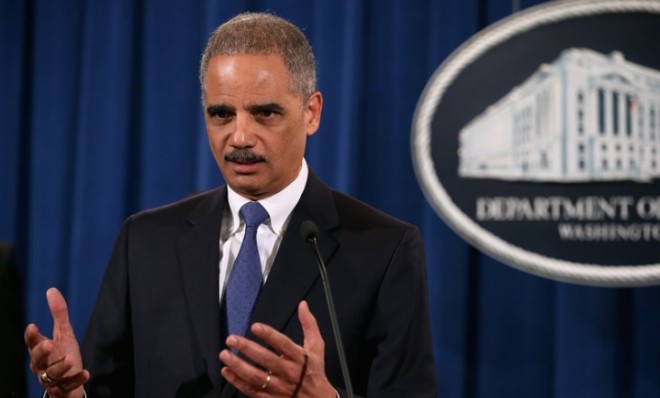The Feds' fraud suit against S&P
The Justice Department charged S&P with defrauding investors by issuing mortgage security ratings it knew to be misleading

A free daily email with the biggest news stories of the day – and the best features from TheWeek.com
You are now subscribed
Your newsletter sign-up was successful
Better late than never, said John Cassidy at The New Yorker. Ever since the housing crisis hit, people have clamored for the authorities to hold rating agencies accountable for giving prime ratings to toxic subprime mortgage securities. This week, finally, the Justice Department filed a $5 billion fraud suit against Standard & Poor's, the largest U.S. rating agency, charging that it defrauded investors by issuing ratings it knew to be misleading. It's tough to predict how this case will turn out, of course. "I, for one, wouldn't dismiss S&P's chances of beating the rap." But the Justice Department's bold move shows the initiative its critics have demanded for so long. I just wish this weren't such an exceptional development, said Michael Hirsh at National Journal. "It's been four years since the financial crisis, and no Wall Streeter has gone to jail or even paid out a penalty severe enough to cost him his palace in the Hamptons." The question now is whether the Justice Department will stick to its guns and "force S&P to admit its wrongdoing formally."
The S&P case is unique for several reasons, said Jason Breslow at PBS. The government is seeking by far "the largest penalty to stem from the financial crisis," and reportedly pushing hard for an admission of guilt. Still, it's hard to tell whether prosecutors are really starting to punish white-collar crime more aggressively. "I never know whether to applaud a new case or be somewhat suspicious the department hopes to score just enough points to manage public perception," said Jeff Connaughton, author of The Payoff: Why Wall Street Always Wins.
The lawsuit is also uniquely awkward, said James Freeman in The Wall Street Journal. While one federal agency — Justice — is suing S&P, another continues to endorse it. To this day, the Securities and Exchange Commission requires institutions to follow the advice of government-anointed credit raters, including Moody's, Fitch, and — you guessed it — S&P. "Before suing a company for $5 billion, shouldn't the government at least stop mandating its products?" The timing and target of this case are also disturbing. S&P's attorney said the federal investigation seemed to "rev up" after the rating agency downgraded the U.S. government's credit rating following the 2011 debt-ceiling crisis. Instead of seeking "downgrade payback," the government should tell the SEC to stop guaranteeing business for these agencies. Americans will "benefit most when few people care how the rating agencies operate, because their judgments won't be that important."
The Week
Escape your echo chamber. Get the facts behind the news, plus analysis from multiple perspectives.

Sign up for The Week's Free Newsletters
From our morning news briefing to a weekly Good News Newsletter, get the best of The Week delivered directly to your inbox.
From our morning news briefing to a weekly Good News Newsletter, get the best of The Week delivered directly to your inbox.
A free daily email with the biggest news stories of the day – and the best features from TheWeek.com
-
 The ‘ravenous’ demand for Cornish minerals
The ‘ravenous’ demand for Cornish mineralsUnder the Radar Growing need for critical minerals to power tech has intensified ‘appetite’ for lithium, which could be a ‘huge boon’ for local economy
-
 Why are election experts taking Trump’s midterm threats seriously?
Why are election experts taking Trump’s midterm threats seriously?IN THE SPOTLIGHT As the president muses about polling place deployments and a centralized electoral system aimed at one-party control, lawmakers are taking this administration at its word
-
 ‘Restaurateurs have become millionaires’
‘Restaurateurs have become millionaires’Instant Opinion Opinion, comment and editorials of the day